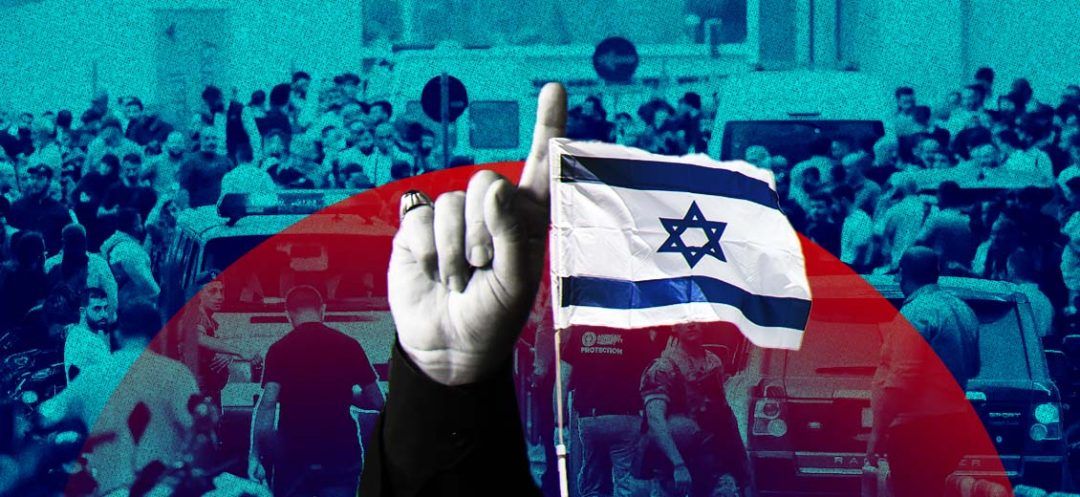- Home
- War in the Middle East
- The Israeli Trap Set for Hezbollah

Almost everything has been said about the methods Israel has used to deliver a painful double blow to Hezbollah, both militarily and psychologically, through two deadly attacks involving booby-trapped pagers and walkie-talkies, targeting thousands of the group's members.
The main question that comes up now is whether Hezbollah’s pledged response following Tuesday’s booby-trapped pager attack will measure up to Israel’s unprecedented operation, despite the risks involved, or if Hezbollah will once again choose restraint in pursuit of broader strategic goals.
After 11 months of conflict, Israel has pushed the limits by taking out the main communication channels of the pro-Iranian group within just 24 hours. This extraordinary operation, carried out in two phases, resulted in at least 26 deaths and over 4,000 injuries, including nearly 400 in critical condition.
The double attack with booby-trapped pagers—small wireless devices that Hezbollah leaders and fighters started using recently to avoid hacking and espionage risks associated with smartphones—on Tuesday, followed by an attack with walkie-talkies on Wednesday, has once again exposed the stark contrast between the resources Israel and Hezbollah, along with its Iranian backers, are bringing to this conflict.
The gap is especially noticeable in technology and intelligence—two formidable assets that make it possible to win a war at a lower cost, giving Tel Aviv a consistent edge over the pro-Iranian group from the beginning. Since October 8, 2023, Israel has shown time and again that it can destabilize Hezbollah merely by deploying its experts behind the screens, while adhering to the strict rules of engagement that both sides have largely followed for almost a year.
Double Option
Against the backdrop of Israel’s resources, Hezbollah's efforts seem inadequate, despite the regular bravado of its leader, Hassan Nasrallah, who is expected to address the attack on Thursday. This speech is highly anticipated as it could potentially shape the direction of future events.
So far, Hezbollah’s responses to significant setbacks reveal a striking disparity between the threats made against Israel and the actual actions taken to follow through on those threats. This gap is likely intentional for various strategic and political reasons.
However, the situation has changed. On Tuesday morning, Israel announced that it was "changing its war objectives to facilitate the return of displaced settlers to the northern regions," and a few hours later, it launched a double attack with booby-trapped devices. This move marks the beginning of a new strategy aimed at a decisive resolution of the military conflict at its border with Lebanon, whether through military or diplomatic means.
The possibility of a diplomatic solution remains an option, as evidenced by international reactions to Wednesday's attack. Diplomats from the United States, France, Germany, Italy and the United Kingdom will meet in Paris on Thursday to discuss the risks of escalation in the region. Meanwhile, the White House announced in the evening an increase in efforts to prevent further escalation at the Lebanese-Israeli border.
Although Tel Aviv is also pursuing a diplomatic solution, this approach is hampered by Hezbollah's demands, which insist on a ceasefire in Gaza as a condition for any settlement.
If diplomatic efforts fail, a military solution appears inevitable. Tel Aviv’s rhetoric suggests that the recent double attack might have been aimed at provoking Hezbollah into a broader confrontation.
In either scenario, Hezbollah seems to be caught in a difficult position. Riad Kahwaji, a security and defense analyst based in Dubai and director of the Institute for Near East and Gulf Military Analysis (INEGMA), comments to This Is Beirut, "I don’t think Hezbollah will react any differently than it did to the elimination of Fouad Shokr," a key military leader. According to Kahwaji, the pro-Iranian group "still does not want a large-scale war and continues to stick to the rules of engagement it has set for itself."
But can Hezbollah, weakened by the loss of many fighters and reliant on its perceived military superiority to maintain its popularity, continue with the same tactics? Or will it retaliate by targeting Israeli military objectives, based on Hassan Nasrallah’s equation: one civilian for one civilian, and one soldier for one soldier? Will it actually put this into practice? The immediate answer is no. Such a response would be costly for both Hezbollah and Lebanon. Additionally, through its involvement in the Israel-Hamas conflict, Iran, Hezbollah's backer, is pursuing other political goals that a large-scale war could jeopardize. So far, Iran’s strategy remains unchanged.
Read more




Comments